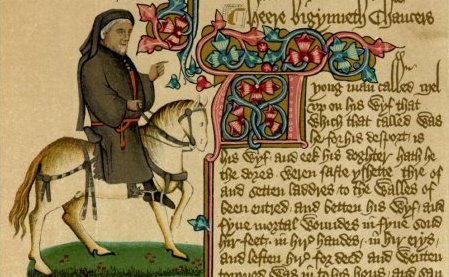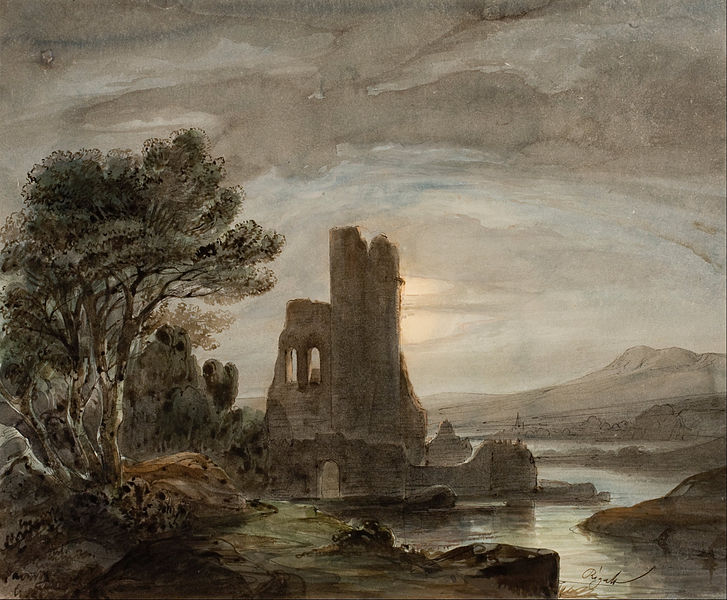“I cannot get enough books”
Do you think you have too many books? Is your library overflowing? If this worries you, consider the words of Petrarch, the great medieval Italian poet.
‘Dear to Me above a Thousand Others’: Augustine at the Dawn of the Renaissance
Augustine, exponent and champion of Christian faith, displayed such knowledge of the poets in all his writings that there is scarcely a single letter or treatise of his which is not crowded with poetic ornament.
Petrarch’s Africa I-IV: A Translation and Commentary
English-speaking scholars have neglected Francesco Petrarch’s self-proclaimed masterwork, the Africa.
Guilt and Creativity in the Works of Geoffrey Chaucer
I argue that as Chaucer develops his own expansive, questioning poetics in The House of Fame and The Canterbury Tales, he problematises the principle of allegory on which the legitimacy of literary discourse was primarily based in medieval culture and the final fragments of The Canterbury Tales see Chaucer struggling, increasingly, to reconcile the boldness and independence of his poetic vision with the demands of his faith.
Avignon vs. Rome: Dante, Petrarch, Catherine of Siena
In the fourteenth century the image of ancient Rome as Babylon was transformed into the positive idea of Rome as both a Christian and a classical ideal.
Why the Middle Ages are called the Dark Ages
How did the term ‘Dark Ages’ become synonymous with the Middle Ages, and why do we still refer to it like that?
Past/Present: Leonardo Bruni’s History of Florence
Past/Present: Leonardo Bruni’s History of Florence Giuseppe Bisaccia Renaissance and Reformation, Vol. 21, No 1 (1985) Abstract The importance of historical consciousness in the…
The Greek Renaissance in Italy
For various reasons north Italy toward the end of the fourteenth century seemed peculiarly adapted to become the seat of another classical renaissance, though of one some what different in character and results from that which had already run its course.
Petrarch’s “Conversion” on Mont Ventoux and the Patterns of Religious Experience
Petrarch’s letter, with its moments of meditation, its allegorical exploitation of the features in the physical ascent, and its program of classical allusions informing even the geographical descriptions, is much more than a travel narrative.
The Publisher Gabriel Giolito de’ Ferrari, Female Readers, and the Debate about Women in Sixteenth-Century Italy
Drawing on recent work on the social history of the book and the politics of reading, this essay considers the texts under question as social products, whose meaning is not just determined by the author’s initial intentions, but is further shaped in the process of production, dissemination, and reception as a result of negotiation among several parties in a given historical moment.
Foundation of the Renaissance: The Civic Culture of Early Italian Humanism
That Francesco Petrarch was the first Renaissance humanist, that he was the first modern man, and that he ushered in a new period of European history known as the Renaissance is the boilerplate of general survey courses as they move from the middle ages to the modern world.
Some Educational Aspects in England in the 16th Century
Some Educational Aspects in England in the 16th Century Pacheco Lucas, Margarita (University of Extremadura – Cáceres) Proceedings of the II Conference of…
KALAMAZOO 2011: Session 92 – Thursday, May 12, 2011: In Giro: Italian Identity and Travel in the Middle Ages
In Giro: Italian Identity and Travel in the Middle Ages Sponsor: Italians and Italianists at Kalamazoo Organizer: Rachel D. Gibson (University of Minnesota–Twin…
Hero or Tyrant: Images of Julius Caesar in Selected Works from Vergil to Bruni
Hero or Tyrant: Images of Julius Caesar in Selected Works from Vergil to Bruni By Sarah M. Loose Master’s Thesis, Brigham Young University,…
The Idea of the Renaissance, Revisited
The idea of the Renaissance as a historical period was first formulated by Jacob
Burckhardt in his book Die Kultur der Renaissance in Italien (1860). In this lecture I want to review some of the many directions taken by Renaissance studies since then, and to make some suggestions for future work.











